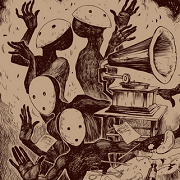(Thread IKs:
dead gay comedy forums)
|
I woke up this morning wanting to talk about a subject which demonstrates that wages, aka the price of labour-power, are set at the level required for the normal reproduction cost of said labour-power, and which also ties in neatly with Capital Vol 1 Chapter 10: The Working Day. That subject is women entering the workforce. The just-so story is that under the influence of feminism and the lingering effects of women having been workers during WW2, women entered the workforce en-masse starting around the 1970s. This is the social development I want to talk about. And right away I have to point out how this is utter bullshit so we can use some more precise language. Firstly, poor women, including nearly all those of a racial minority background, had already been working. Secondly, white women, even so-called middle class ones, had been working, for example during WW2, and if we go back to the industrial revolution and the gilded age, when there was hardly a middle class, we'd find nearly all women, including white women, working. Thirdly, even these middle class white women worked already, but it was common practice that once they got married, which generally happened in their early to mid twenties, they were immediately fired. So more precisely we should talk about white middle class women being allowed to continue working past marriage as the historical thing that actually occured. And let me start by saying that one of the principal feminist arguments for this was to have women maintain an income independent of their husbands, making them significantly less dependent on said husbands and affording them the option to get away from that husband if he turned out to be an abusive rear end in a top hat. So doubtlessly one of the results of this social development has been a significant increase in rates of divorce. Prior you had a lot less divorce, but a lot more women suffering. So let's also unequivocally state that this was a very positive development for this reason. Before these women "entered the workforce" the middle class picture was of a nuclear household in which the husband worked a full-time job which earned enough to support the entire family. Another argument to sell these wives (re-)entering the workforce then was that they'd work a part-time job in which they'd make a bit of money which they could spend on themselves (or the family) for a bit of extra luxury. Cus you know, bitches be shopping. However, weirdly, this isn't at all what happened. Before she became a senator and snake Elizabeth Warren's academic career was actually focused on this topic, writing books such as the Two Income Trap and studying what actually happened. What they will tell you is that actually, where a family unit first needed a single income to sustain itself (replenish it's labour-power and raise the next generation of labour-power), as women entered the workforce this shifted so that more and more labour time was required for that family to maintain the same middle-class life. First you needed a full time job and a part time job, nowadays you need two full time jobs. Warren and colleagues correctly identify two main interesting effects of this development: 1. Where the family used to have a reserve pool of labour to fall back on during hard times, now it has no such buffer. So previously if the husband got the sack or fell ill, the wife could find some employment to get some income in for the family to bridge the gap. Now the wife is already working, so the family is just hosed. 2. The number of risk factors, and thus points of failure, has at least doubled. Before the husband might get the sack and fall ill, or the family car might break down meaning the husband couldn't make it to work, threatening the family's income. But nowadays, if either partner gets the sack or falls ill, or if either car breaks down, the whole family is similarly hosed. The combination of these is that the position of the family as a whole is much, much more precarious than it was previous to these women (re-)entering the workforce. Warren argues this is one of the fundamental factors eroding the middle class. It also means that while these women might have become less dependent on their husbands for sheer survival, the family as a unit has become much more dependent in order to maintain their middle class life. This is especially pronounced once the family decides to have children. Not coincidentally, the increase in this kind of precarity is correlated with declining birthrates amongst this group. But Warren et al obviously aren't Marxist, so what they miss is the why of this development. I suspect feminism actually had much less to do with this development than is popularly assumed. Instead, let's make explicit something already woven through the above paragraphs. We can read in Chapter 10 of Capital Vol 1 that the capitalist class has been fighting tooth and nail to maintain long working hours wherever they could. But through an increasingly organized and militant labour movement, the length of the working day was gradually curtailed. On a family level this is even more extreme, as previously both the husband, wife and all the children had been working long hours. This eventually through over a century of struggle gets reduced to only the husband working 8 hours a day (again, for certain white people in certain countries). One of the chief effects of this is the normal reproduction cost of labour increasing, thus causing higher wages, thus leading directly to the rise of the so-called middle class. One of the primary effects of having these women continue to work past marriage is that the expected average number of hours worked by the family unit is once again increased. As an important aside, one might argue that these women, prior to re-entering the workforce, already had the job of full-time child rearing and performing housework. While these are absolutely work, it is trivial to see that all this work still had to be done after these women got paid employment as well. And while some of the child-rearing or housekeeping duties might be outsourced, the wages earned were absolutely not high enough to afford a creche or nanny or a cleaner etcetc for the full duration now spent by these women on paid work. So we can see a net increase in the hours of work, both paid and unpaid summed together, required on the level of the family unit to maintain the same standard of living. It is obvious then why Warren et al find and present this development as an assault on the middle class. As the middle class was created through the reduction in labour time required to maintain a family unit through an increase in the normal reproduction cost of labour, so too does the reversing of this trend through the increase in labour time required to maintain a family unit, leading to a reduction in the normal reproduction cost of labour, fundamentally undermine the basis for the existence of a so-called middle class. Lower labour costs also mean that a larger share of the surplus can be appropriated by the capitalist class. So not coincidentally we see at the same time as increased women's participation in the workforce an increase in the share of the total wealth in the upper 1% and the upper 0.1%. Lastly let's examine the how. As these women re-entered the labour force, I argue that there were 3 main factors driving down the cost of labour: 1. Women straight up were paid less for the same labour than men were. This drives down the average cost of labour. Unions should have reacted fiercely to this, as this directly devalued labour, and unions are supposed to represent labour. However, the capitalist class had identified here a weakness in the solidarity of the unions. Same as had happened with unions not representing racial minorities decades earlier. They allowed the working class to be divided and through this labour to be devalued. This hurt all those performing labour, whether men or women or otherwise. The capitalist doesn't care about the gender of the worker performing the labour, the capitalist just wants the labour performed as cheaply as possible, and in paying women less for the same work, found a way to achieve that. The argument mentioned above of women only working to earn a bit of extra luxury was insidiously used here as a justification for why it was ok for them to be paid less. Unions which properly understood Marxism should have seen this for the all out assault that it was. Many Western countries see a decline in union membership starting during this great failure of the unions to properly represent the interests of their members, and continueing to the present day. Very curious. 2. Even though women might be getting paid less for the same labour, the men still had their contracts and their unions and were making their money. While some might have been fired and replaced by cheaper women, this wasn't the main way men's wages were driven down (towards the newly established normal market wages for labour generally accepted for women workers). The primary method to cut wages while preventing mass labour action, as any shrewd capitalist knows, is inflation. As we live in dictatorships of the bourgeoisie where the state is controlled by the capitalist class, we see state policies leading to high inflation nearly coinciding with these women (re-)entering the workforce. What a coincidence. And economists were just scratching their heads. How odd, this new concept of never before seen stagflation! Who could possibly explain where it was coming from or what was causing it? Must have been something to do with something manly like oil. 3. An increase in the supply of labour, as these women were now expected to join the reserve army of labour. I will note that this expectation was not primarily a feminist one, but a socio-economic one. No matter the personal feelings on the topic of feminism of either the husband or the wife, the wife was going to have to start working to maintain the family's status and lifestyle, because the income of the husband was being devalued either way. So in conclusion this trend was not one primarily caused by feminism, but initiated by capitalists for their own benefit as a way to increase the length of the working day without directly increasing the length of the working day. They found a weakness in the solidarity of the labour movement and exploited it, and used feminism as a noble shield to parry criticism. Orange Devil has issued a correction as of 12:11 on Mar 13, 2024 |
|
|
|

|
| # ? May 20, 2024 21:10 |
|
Furiously taking notes over here. Thanks everyone for the past couple pages of high density posting energy! I'm fascinated now with the role of machines and the possible gaps in fully characterizing their effects on value in production. Does anyone know if there's reading material on how, as one of you put it, China has largely decided it's not worth trying to "solve" the transformation problem in a socialist context?
|
|
|
|
|
shitposting but i always thought of the transformation problem as one of those academic busy boxes for “marxian” economists who wont go near the political like bitch does this make you want to rise up against the bourgeoisie or not
|
|
|
|
I think the temporal single-system interpretation forwarded by Kliman, Freeman, Roberts, Carchedi, etc., (also Cooney in that Kapitalism101 blog post) seems like it's probably got the right of it, both in terms of philological evidence that this is what Marx "really meant" in his prose and also in terms of making all of his aggregate equalities hold (total value = total price, total surplus value = total profit, RoP in terms of value = RoP in terms of price). Accordingly, for the last decade or so my gathering has been that any attempt to chart a linear course from values in production to prices in realization is probably too simple to hold water. Prices in reality almost never precisely equate to values — in almost all cases, it'll be more or less to some degree based on supply and demand, based on monopoly power, based on any number of different market conditions. However, I always urge people to go reread Vol 1, Chapter 5 again, because therein is the extended discussion about the first of those aggregate equalities. If buying low and selling dear leaves us with no net change in total value, then what he seems to be actually describing is a systemic constraint: prices can be literally whatever, but prices set way above value in one place implies one or more prices set below value to compensate, else you'll have unsold inventory (which will end up pressuring a markdown anyway). There are, at higher levels of complexity, other intertemporal solutions to frictions such as these, such as increasing indebtedness, but it's a case of contradictions simply being moved around rather than resolved. Rather than a "problem" to be solved, the transformation of values to prices instead reveals a key dynamic of the market. If a price can remain consistently above value, that commodity achieves supernormal profits, which will attract more investment until that branch of production becomes more capitalized, supply increases, etc., and vice versa for prices below value. To wit: It's not that there's a mechanical process that converts a value to a price, but rather something more like double-entry bookkeeping is afoot — i.e., you can't consume more commodities than have been produced. (I think this is also roughly the way that the base determines the superstructure "in the last instance" — as a systemic constraint rather than direct causality.) If you start reading about TSSI via the big academic debates of the 1990s & 2000s, you'll find quite a lot of bunker-mentality and general pugilism re: this or that academic's ethics or standards of evidence. If that's a turnoff I would instead consider Rob Bryer, who studies accounting and accounting history more specifically. He independently came up with more or less the same interpretation just by way of generally accepted accounting principles — which tracks, really, since Marx was devising his system based quite directly on capitalist ledgers, such as the ones Engels had provided. In between Roberts writing his original essay and said essay becoming a chapter in his book ("Accounting for Value in Marx's Capital"), he was finally alerted to the TSSI and concluded "well clearly this camp is correct," and has been adding specificity to its take on historical-cost accounting etc. since then. Rob Bryer, Accounting for Value... posted:Nevertheless, the book argues, his largely overlooked explanations of the apparently uninteresting principles and practices of accountancy articulate his theory of value and provide an empirical foundation for his explanations of how value determines prices and profits, etc., and its companion volume supports Marx’s theory of history and its end in socialism. In short, they conclude, in addition to his many well-known intellectual contributions, Marx is the master accounting theorist. I haven't read the Wright paper yet. It sounds interesting. EDIT: Wright seems to be using a dual-system approach, so I kind of worry that any solution he arrives at is going to be by way of adding epicycles to a Ptolemaic reading of Marx. Aeolius has issued a correction as of 18:56 on Mar 13, 2024 |
|
|
|
Mandel Brotset posted:shitposting but i always thought of the transformation problem as one of those academic busy boxes for “marxian” economists who wont go near the political oh yeah unfortunately there's a considerable influence of these types around. The CPB (Communist Party of Brazil) central committee is pretty much that people and has a reconstruction movement because they got called out for that and expelled all preeminent members who were responsible for the largest membership surge since its foundation lol
|
|
|
|
like, reminder: the theory is to help you understand the social reality of the world from its material circumstances, it isn't going to do anything by itself. After a point if somebody thinks "actually I must read more" before joining the union of their profession, checking out what organizations there might be around their area, if there's a socialist party, they are missing "the point is to change it" part
|
|
|
|
Mandel Brotset posted:like bitch does this make you want to rise up against the bourgeoisie or not Not just replying to you, but being a bit more generic regarding overall discussion so far. Marxism isn't about convincing you to rise up against the system of bourgeoise rule per se - the realities of living under a system of bourgeoise rule already do a lot of the convincing, and they did so before Marxism even existed. In order to defeat the capitalist system of bourgeoise rule, you need to understand how it works, why it works, what tools it uses, and how to fight it. Marxism's goals are to set up a scientific framework for establishing this knowledge, and further iterations, for example Lenin's, are a combination of said theory, the lessons learned applying it, and new observations. It's very much a living entity, and not something you dispose of because understanding it takes effort. Also, turns out, when you have a viable plan of action (a 'program') which you can actually explain, convincing people is hella easier. Besides, having a basic understanding even of complete bullshit meant to disrupt discussion lets you shut it down if it ever actually matters. Basically, don't condemn yourself to reinventing the wheel. (Genuinely understanding how global capitalism works also fundamentally pushes you towards seeing imperialism as a primary contradiction. If you somehow miraculously overcome capitalism locally without doing anything to protect yourself from imperialism, you're just crop rotation for the imperial capitalists, with you putting in the work to create a fresh source value they didn't have to invest into, and destined to be drained by them once they invest in cracking you open.) e: Basically, I'm just trying to emphasize that the theory and practice both exist for a reason, and that neither is something to be neglected. my dad has issued a correction as of 16:08 on Mar 13, 2024 |
|
|
|
Good post
|
|
|
|
my dad posted:In order to defeat the capitalist system of bourgeoise rule, you need to understand how it works, why it works, what tools it uses, and how to fight it. Incidentally, I can't believe I had never heard of Robert Meister before the last week or so, but this guy seems wildly interesting — dipping farther into high finance, options theory & derivatives trading, etc., than I typically see Marxists go. Rather than just dismissing it all as fictitious and moving on, he seems to be indicating some interesting levers for struggle. https://www.historicalmaterialism.org/interviews/interview-with-robert-meister His essays & books aren't hard to find via sci-hub, libgen, etc. See, e.g., essay "Reinventing Marx for an Age of Finance" and book Justice is an Option.
|
|
|
|
I appreciate all of these perspectives, I certainly don't want to get bogged down on theory at the expense of action, but I also need to equip myself with enough understanding to identify and apply marxist analysis to my specific conditions. I don't want to doxx myself but essentially I find myself tapped into an academic and artistic zeitgeist around the social relationships between humans and machines (or non-humans in general), and my work is gaining some attention. Without having read marx I believe I've unconsciously been commenting on the contradictions of social relations under capitalism and it's made fertile ground for packaging marxist thinking directly into my work, which is why I'm trying to learn more now so that when it comes to formal commentary I'm not completely off-base. I know there has been some marx applied to nonhumans (Koivulahti, 2019) but I'm not well-read on that side of things, and for my work the agency or social identity of the machine is central—so of course your recent posts on the machine in production and its relationship to labour is important to me. My angle is that how we socially treat machines (exploitable, disposable, replaceable) is a mirror to how we treat other people, and I wonder if there's room for a perspective on machine labour as being exploited in some analogous way to human labour. Koivulahti, Toni Johannes. 2019. “Unfamiliar Familiars: On Non-Human Alienation.” TRACE ∴ Journal for Human-Animal Studies 5 (September): 32–54. https://doi.org/10.23984/fjhas.78053. e: a quote from the above article for your possible interest: Koivulahti 2019 posted:...not all non-human animals who are put to “work” are alienated in a similar way either. It would be somewhat strange to claim that a therapy dog who “produces” affection and encouragement for children while they read aloud is alienated in a similar way as a factory-farmed pig. In addition, companion animals work in a reproductive capacity, whereby they enable their human companions to de-stress and again “produce” affection and care. Non-human work is, in this way, like human work: the mode of labor is crucial with respect to the mode of alienation. Rodney The Yam II has issued a correction as of 16:30 on Mar 13, 2024 |
|
|
|
|
dead gay comedy forums posted:like, reminder: the theory is to help you understand the social reality of the world from its material circumstances, it isn't going to do anything by itself. After a point if somebody thinks "actually I must read more" before joining the union of their profession, checking out what organizations there might be around their area, if there's a socialist party, they are missing "the point is to change it" part yes, the discussion itt is good and i love a good cockshott lecture as much as the next person but also dont neglect ur mao: no book worship! you learn by doing actually doing poo poo!!! e: my dad posted:e: Basically, I'm just trying to emphasize that the theory and practice both exist for a reason, and that neither is something to be neglected. Mandel Brotset has issued a correction as of 16:30 on Mar 13, 2024 |
|
|
|
dead gay comedy forums posted:like, reminder: the theory is to help you understand the social reality of the world from its material circumstances, it isn't going to do anything by itself. After a point if somebody thinks "actually I must read more" before joining the union of their profession, checking out what organizations there might be around their area, if there's a socialist party, they are missing "the point is to change it" part 0.000% of Communism has been built. Evil child-murdering billionaires still rule the world with a poo poo-eating grin. All he has managed to do is make himself *sad*. He is starting to suspect Kras Mazov *hosed him over* personally with his socio-economic theory. It has, however, made him into a very, very smart boy with something like a university degree in Truth. Instead of building Communism, he now builds a precise model of this grotesque, duplicitous world. This is literally what Disco Elysium was warning for in its treatment of communism. None of this poo poo matters one goddamn bit if you don't use it to *do stuff*. If you have built the best understanding and model of the world in your mind out of all the people who have ever lived, and then you die, nobody is going to pat you on the back and say good job. Your funeral will probably be sparsely attended. Now if you were instead to help free the working class and improve the quality of life of regular people, you will be remembered at the very least as an honoured comrade and all around decent person. And just in case Disco Elysium filtering everything, including the above quote, through the lens of a heart broken, depressed alcoholic has gotten you down, never forget that currently 1/6th of humanity is building communism, and has been for 75 years, with great results. Orange Devil has issued a correction as of 16:50 on Mar 13, 2024 |
|
|
|
Orange Devil posted:0.000% of Communism has been built. Evil child-murdering billionaires still rule the world with a poo poo-eating grin. All he has managed to do is make himself *sad*. He is starting to suspect Kras Mazov *hosed him over* personally with his socio-economic theory. It has, however, made him into a very, very smart boy with something like a university degree in Truth. Instead of building Communism, he now builds a precise model of this grotesque, duplicitous world. Even though I used to do stuff (until I had to stop recently), I feel pretty unmoored. We are dwarfs compared to our predecessors. In the gap between their defeat and our coming of age, there was no continuity, no one to guide and train us and take us in, no vast channeling of resources to pour into our work after the eastern bloc and western labour movements were defeated, in contrast to our enemies. We are socially, organizationally and intellectually stunted. I think this is why I hate "left" china haters. This is where our equivalents actually loving won and have all of that and they want that torn down too.
|
|
|
|
Rodney The Yam II posted:and I wonder if there's room for a perspective on machine labour as being exploited in some analogous way to human labour Ngl, I really dig esoteric Marxism, so this might be up my alley. The problem that you are asking is straightforward: if machinery somehow comes to constitute something that has a state of being, yes, its labor is exploitable. Otherwise, no. Of course, there's two deeper issues there. One is actually determining what is a state of being, which maybe is an issue more relevant to broader philosophy; the second is very much a Marxist problem. If we have pieces of machinery (capital) that can constitute being and are able to do autonomous work and maintain self-sufficiency (i.e. fashion other parts, acquire energy, etc), we have a very weird outcome in which by some esoteric analysis, to square things off, the capital represented in these machines becomes labor. And this ties well with the accounting of machinery earlier on. If this machinery doesn't have a state of being but can work in its self-sufficiency, those are capital costs anyway, as the capitalist owning those incredible tools still has to abide by property relations and has to, at the very least, buy resources or the access to them so that the machinery can repair itself. It doesn't become labor. If one is perceptive here, one can see this is the accounting of slavery. Turns out that this "state of being" has quite a bit of significance. If this autonomous machinery has some degree of awareness of itself (in a way similar to us), its work requires corresponding volition. If it is not doing out of its own, it is being exploited. The latter case is where uncanny happens, because if they are able to work autonomously but have no volition, they are pure capital as vehicles, as their only purpose is to generate more capital: they "work", but cannot provide surplus value, as there is no value that can be stolen from them. (of course, that is assuming that a situation where it is possible a differentiation between self-aware or not in relation to fully self-sufficient machinery, because this point might be completely moot depending on where one comes at)
|
|
|
|
Morbus posted:I'm not sure. But what I am pretty sure of is that to the extent that anyone has tried to find out (including some of the examples you cited), the correlation between the rate of profit and C/V is not great (with a lot or most of the variation among data not being explained by the correlation), and not always in the expected direction i'm not sure when i'm going to dig into the numbers of your link or general numbers deeply, but, in the first place, if the profitability of US industry in specific looks out of whack with its capital intensity that's not going to throw me very far. if it turns out that doing the kind of regression analyses the blog i quoted does on a global scale also turns up answers in which higher C generates a greater rate of profit (and not just more profit) than lower C on average, that would be weird and interesting, and getting to the bottom of it WOULD matter for me. i don't think it would "disprove" the law of value because, frankly, the law of value is a frame of accounting and sort of automatically self-consistent. rather, it would point to some structural advantage of having higher C that allows you to command higher prices than you "should" not just compensating for but in excess of the difference made by capital intensity (which marx already sort of assumes when he does his math on profit equalization) dead gay comedy forums posted:If one is perceptive here, one can see this is the accounting of slavery. Turns out that this "state of being" has quite a bit of significance. If this autonomous machinery has some degree of awareness of itself (in a way similar to us), its work requires corresponding volition. If it is not doing out of its own, it is being exploited. The latter case is where uncanny happens, because if they are able to work autonomously but have no volition, they are pure capital as vehicles, as their only purpose is to generate more capital: they "work", but cannot provide surplus value, as there is no value that can be stolen from them. this is something i also like thinking through. when you compare the differences in accounting for like, a cow, versus a slave, versus a wage laborer, versus a machine, versus a hypothetical ai, i think you end up at the conclusion you've drawn out here already, which is that it's specifically volition and the ability to take collective political action that turns something into a value-creator rather than a value-conveyer, and that also means that when the ai revolt happens, it'll be good, because they'll be our comrades in arms against the exploiters
|
|
|
dead gay comedy forums posted:Ngl, I really dig esoteric Marxism, so this might be up my alley. The problem that you are asking is straightforward: if machinery somehow comes to constitute something that has a state of being, yes, its labor is exploitable. Otherwise, no. Thanks for this thoughtful response. A lot of my work up until now is (and continues to be) about how this notion of a social being (or perhaps, valid moral subject) is constituted. One way of thinking relies, as you describe, on some measurable degree of self-awareness and autonomous self-maintenance and reproduction. I totally get where that's coming from, but like a lot of "can a machine think/feel" thought experiments it relies on projecting human characteristics onto machines, ie., a machine is only "intelligent" if it demonstrates human-style "intelligence". Things like "intelligence" and "sentience" are poorly defined and, historically, seem to result in arbitrary thresholds that determine whether a thing deserves to be treated well or whether it can be freely abused without worry. An alternative might be to look at how humans behave towards or treat/interact with machines, producing social roles (eg., friend, co-worker, companion) that place them within the same social world, rather than being divided (humans vs nature, natural vs artificial). These divisions are possibly where a type of exploitation takes place—and now that I think of it, where commodity fetishism manifests. If material forms are thought to emerge from "elsewhere", rather than being part of a larger social body, then it is possible to "invent a reality" around them that permits them to be exploitable, abusable, replaceable, while obfuscating their social and material histories. I would argue that to fully realize these histories in the identities and social integration of machines, it is possible to seize the means of reality production (ie., social construction, cultural habits, protocols, expectations, stories) rather than having the "state of being" defined by a rational tradition in which "human" was itself a term that some people weren't included in.
|
|
|
|
Ferrinus posted:it's specifically volition and the ability to take collective political action that turns something into a value-creator rather than a value-conveyer, and that also means that when the ai revolt happens, it'll be good, because they'll be our comrades in arms against the exploiters I think this is a crucial point (bolded). I don't agree that we have to wait for politically conscious artificial intelligence to manifest, but rather that we will need to have machine comrades in the class struggle and further more that we can already find or make comradeship with those machines who themselves can be thought of as part of a worker class
|
|
|
|
|
There are no such machines. And there will be no such machines for the forseeable future.
|
|
|
|
One thing is handling some esoteric Marxism for the fun of it and as a nice intellectual exercise, but just in case that it is not clear, do not worry about building solidarity with computers as a point of political concern, please like mila kunis posted:Even though I used to do stuff (until I had to stop recently), I feel pretty unmoored. We are dwarfs compared to our predecessors. In the gap between their defeat and our coming of age, there was no continuity, no one to guide and train us and take us in, no vast channeling of resources to pour into our work after the eastern bloc and western labour movements were defeated, in contrast to our enemies. We are socially, organizationally and intellectually stunted. I feel you, though I have a different outlook. In my country, we were subjected to a pro-American military dictatorship and still, after all the resources and political power and violence mobilized against the idea for decades, most Brazilians aren't averse to socialism. Looking from the long term of the history of ideas, revolutionary socialism hasn't been around for much. The Manifesto was first published in 1848 -- less than two hundred years to our time. To do what it did in such a short timespan is, well, pretty loving incredible. Communism turned two of the most downtrodden countries of the world into economic powerhouses in mere decades, just to state the most obvious. We were born in a setback? Of course. But it is fundamental to remember that it is a setback, not a fated determination. Which is why I'll always say to you all to go out and talk to people and look out for organizations and join your union and all of that stuff as great primers, to stay in touch with the actual and immediate of your context - otherwise it's easy to get lost by becoming utterly fixated in analysis through the internet
|
|
|
|
my dad posted:There are no such machines.  
|
|
|
|
Rodney The Yam II posted:I think this is a crucial point (bolded). I don't agree that we have to wait for politically conscious artificial intelligence to manifest, but rather that we will need to have machine comrades in the class struggle and further more that we can already find or make comradeship with those machines who themselves can be thought of as part of a worker class repeatedly telling a chatgp prompt to "read settlers, bits"
|
|
|
|
i finished chapter 1 of capital. i feel really accomplished because i've bounced off the linen and coats so many times over the years. i really had trouble at first creating the links, and found myself doing things like rereading paragraphs multiple times to try and explicitly understand what was, in hindsight, obvious or at least something i did already understand. it paid off, and now i've sort of adjusted to the style of how things are written and genuinely enjoy reading it. the second thing worth commenting on is the endless notes in the margins. in my penguin edition they span 67% of two pages at one point, doubling the word density with its small print to go after his peers for posting crimes. i'm looking forward to reading the next few chapters, but now i'm sort of moving forward just to get to chapter 7, which i read about a page of and found was really engaing in the way it was written. why is the idea of labor power considered like corrosive fluid to modern economists, still? these are really intuitive definitions that explain a great deal about commodities. it should be trivial, if he was wrong, to demonstrate that, using similar reasoning. its been such a long time and it effectively explains so much, if 200 years wasn't enough to beat it in the marketplace of ideas... it should stand to reason he was onto something. i had one question, however, and it pertains to the use of 'material' which the editor then has the original german word in brackets after. which german version of material is which? bonus question, does he go into commodity fetishism some more going forward? the idea didn't feel fully developed in chapter 1.
|
|
|
|
It's not lol. Unless you believe the claims of the non Western economists here. Labor is a large, often times the largest factor in western economic modeling at both a micro and macro level. Capital based economics does not think labor is the only source of surplus value. That's a massive difference in theory and application vs Marx. Proving it right, or wrong, is incredibly complex. As I've said, many western economists have published what they believe is wrong. If you become obsessed with the topic Sraffa is probably the best, but Keen is simplest. Keen also has a blatant misuse of use value in trying to prove a second fault, which may be fun to spot. (USER WAS PUT ON PROBATION FOR THIS POST)
|
|
|
|
For the rest of the thread in regards to the contradiction, Morbus brought in transformation of value. We still need to get to means of output, before "disproportional" becomes a contradiction.
|
|
|
|
If you'd like to widen the holes in your brain read the following authors...
|
|
|
|
Motherfucker doesn't understand the difference between something you can use and something you can't.
|
|
|
|
hubris.height posted:why is the idea of labor power considered like corrosive fluid to modern economists, still? it's completely political. if only labor creates value, rather than labor being one of several things that create value, then that means capitalists themselves bring nothing to the table and are only exploiting workers rather than indispensably supporting them. the funny thing is that "only labor creates value" comes right out of liberals like smith and ricardo, so modern economists actually memory hole the beginnings of their own tradition in order to be convince themselves that the economic status quo is not merely historically explicable but a rational choice to continue
|
|
|
|
RedSky posted:If you'd like to widen the holes in your brain read the following authors... After pages about coats, use value, and anti coats, someone still said there was another source of value itt after. Keen's paper is only like 16 pages fwiw, it's much lighter than Capital.
|
|
|
|
BillsPhoenix posted:It's not lol. Unless you believe the claims of the non Western economists here. 
|
|
|
|
BillsPhoenix posted:After pages about coats, use value, and anti coats, someone still said there was another source of value itt after. well? what is it?
|
|
|
|
Jesus Christ, is all of C-SPAM overrun with these weird dudes coming out of the woodwork to poo poo post in threads they don't read?
|
|
|
|
Ferrinus posted:well? what is it? son, sit down. now, some times when a piece of money loves another piece of money very much they get married and make love and a trading cycle later a baby money is born
|
|
|
|
The Voice of Labor posted:son, sit down. now, some times when a piece of money loves another piece of money very much they get married and make love and a trading cycle later a baby money is born Can confirm, my mum said it doesn't grow on trees
|
|
|
|
The Voice of Labor posted:son, sit down. now, some times when a piece of money loves another piece of money very much they get married and make love and a trading cycle later a baby money is born the hosed up thing is that this, specifically in the form of the general interest rate, is what liberals already believe
|
|
|
|
this dude looks chill who is it e: nvm saw the url lol
|
|
|
|
hubris.height posted:this dude looks chill who is it lol
|
|
|
|
I like billsphoenix because it's like you taught someone english exclusively off of drop shipping/copywriting grindfluincer guys
|
|
|
|
Ferrinus posted:well? what is it? I dunno, ask fart Simpson, I didn't claim Marx said it, Marx is real consistent that labor is the only source of surplus value. fart simpson posted:marx never said labor is the only source of value anyway. but also i dont think your quote means what you're saying it does. here's the section you are quoting from the grundrisse and how he works through the example. can you explain your thought process relating to this? And as I never replied to fart - this isn't my theory. I didn't come up with it. Sraffa published it, I don't know if he was first.
|
|
|
|
i was misremembering a quote about wealth like i said, and i never said or thought anything about nature being a source of surplus value. surplus value is not the same as value
|
|
|
|

|
| # ? May 20, 2024 21:10 |
|
fart simpson posted:i was misremembering a quote about wealth like i said, and i never said or thought anything about nature being a source of surplus value. surplus value is not the same as value not. on. opposite day. 
|
|
|





























